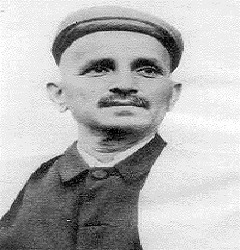
Pandit Vishnu Narayan Bhatkhande (1860–1936)

Pandit Vishnu Narayan Bhatkhande was a pioneering Indian musicologist and a seminal figure in the study and preservation of Indian classical music. Born on August 10, 1860, in the small town of Mewase, near Pune, Bhatkhande’s contributions to the field of Hindustani classical music are profound and enduring.
Educated in law and music, Bhatkhande was deeply influenced by the rich tradition of Indian music and dedicated his life to its systematic study and documentation. His most notable contribution was the compilation of the "Kramik Pustak Malika" series, which meticulously cataloged and classified the Ragas of Hindustani classical music. This comprehensive work is a cornerstone for students, scholars, and practitioners of Indian classical music.
Bhatkhande’s innovative approach to music theory and pedagogy played a crucial role in standardizing musical notation and terminology, bridging the gap between traditional practices and modern academic study. His work provided a structured framework that helped preserve the diverse and intricate forms of Indian classical music amidst changing cultural landscapes.
His legacy extends beyond his written works; Bhatkhande’s efforts in music education and his role in promoting and organizing musical performances have had a lasting impact on the Indian classical music tradition. He passed away on September 19, 1936, but his contributions continue to inspire and shape the understanding of Indian classical music.
